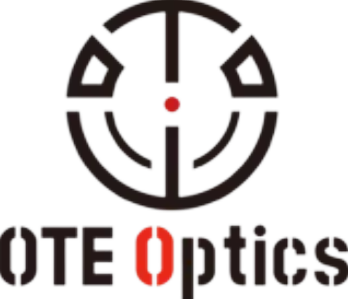Frequently Asked Questions
Make sure you are looking through the optic while focusing on your target, not on the dot. If you have prescribed corrective lenses, be sure to wear them.
Try reducing the intensity by 1-2 steps.
A starburst effect or misshapen dot can be caused by astigmatism. You can check this by rotating the uninstalled optic while viewing the dot.
If the shape turns with the optic, there may be an electronic or mechanical issue. If the shape does not rotate with the optic, this is how your eye perceives the reflected dot.
If you manually power off the optic by pressing both buttons simultaneously, shake awake will not function. The optic must be left on and allowed to enter sleep mode for the optic to ”shake awake.”
The first step is to check the battery on your optic. If you have replaced the battery, confirm the installation of the battery, and tighten the battery cap as suggested. Adjust the brightness up and down to ensure it isn’t on a Night Vision setting–if your optic utilizes them. If your unit still has no dot or illumination, it may be defective and should be sent for warranty service.
Open Reflex Sight:
Imp – L 1.6 x W0.94 x H 1.01 inch
Demon – L 1.78 x W 1.14 x H 1.06 inch
Red Dot Sight:
Marauder – L 1.78 x W 1.34 x H 1.26 inch
Cacodemon – L1.78 x W 1.34 x H1.26 inch
Reaper – L 1.78 x W 1.34 x H1.26 inch
Prism Scope:
Baron of Hell – L 4.11 x W 1.65 X H 2.63 inch
Accessories:
Team Member 1 – L 4.37 x W 1.73 x 2.5 inch
Team Member 2 – L0.66 x W 1.73 x H 2 inch
Team Member 3 – L 1.6 x W 1.73 x H 2.5 inch
Knight 1 – L 4.88 x W 1.7 x H 2.2 inch
Knight 2 – L4.4 x W 1.7 x H 2.5 inch
Lost Soul – L 1.77 x W 0.6 x H 1.64 inch
Our Imp optic uses the RMSc footprint. It allows more compact, concealed, carry-oriented pistols to benefit from a red dot optic vs. traditional iron sights.
Some of the pistols that are Imp ready out of the box are:
1. Walther PPS RMS
2. Sig P365 RMSC and P365XL RMSC
3. Springfield Hellcat
4. Smith and Wesson Shield 2.0 Optics Ready
5. Canik Elite SC
6. These pistols will accept our Imp optic without needing to have the slide milled by a qualified gunsmith.
Other pistols that can be a candidate for the Imp but will require a skilled gunsmith to machine the slide before mounting are:
1. Glock G48 and G43X
2. Glock G36 and G30S
3. Smith and Wesson Shield
4. Sig P365/P365XL (Non RMSC versions)
5. Walther PPS
6. Any non-RMSc model of 1911 or 2011 format pistols.
Please contact us if you have any questions about your pistol’s ability to accept Sentinel.
Co-witness refers to the alignment of your iron sights with your optic sights. The basic concept is when aiming down sights, you would expect both your iron sights and optic sights to be aligned, which is a co-witness. The two most common types of co-witnesses are absolute and low 1/3.
An absolute co-witness is having your optic mounted at the same height as the iron sights. The crosshairs on the optic sights are aligned with the iron sights when looking through the iron and optic sights.
Absolute Co-witness Pros: Consistency when switching between iron sights and optics.
Absolute Co-witness Cons: Iron sights may obstruct or clutter your optic sight picture.
A lower 1/3 co-witness is having your optic mounted slightly higher than the iron sights. When looking through the optic sight, the iron’s sight is lower than as the crosshair of the optic sight. The iron sights appear in the lower 1/3 of the optics FOV. The crosshair will align with the iron sights by dropping your sight to look through the iron sights.
Lower 1/3 Co-witness Pros: Extra height allows you to fixed sights that allow an uncluttered view through optic sights.
Lower 1/3 Co-witness Cons: Must raise or lower the line of sight when switching between optic or iron sights.
For any 1/2 inch nuts on Mount and Ring Bases, we suggest between 20 to a maximum of 30-inch pounds.
For any screws affixing the tops of your ring or mount covers to secure your optics, we suggest between 10 to a maximum of 18-inch pounds, with 15 being a great middle ground.
For any Duty or Defense of Life Applications, a small drop of blue thread locker is suggested in conjunction with the above torque specs.

